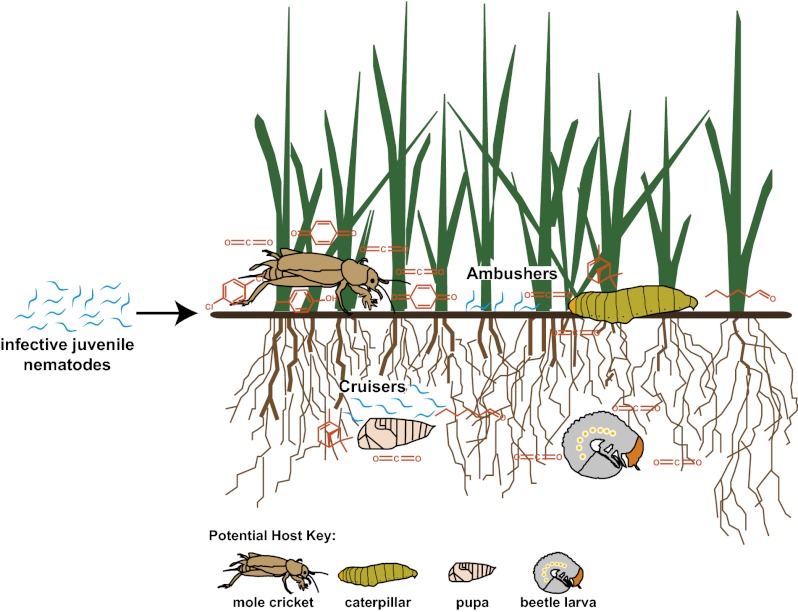Fig. P1.
The role of olfaction in the host-seeking behavior of EPNs. Infective-stage EPNs inhabit complex soil environments. They must locate hosts among rocks, plant roots, fungi, and all other objects encountered in the soil. They then must distinguish among potential invertebrate hosts and eventually select a suitable host. EPNs use host-produced odorants for host location and appropriate host selection. Some EPNs use a cruise foraging strategy and actively hunt for sedentary insects and insect larvae within the soil column; others use an ambush foraging strategy and wait at the soil–air interface for insects to pass by. Our results suggest that olfaction plays an important role in both these host-seeking strategies.

